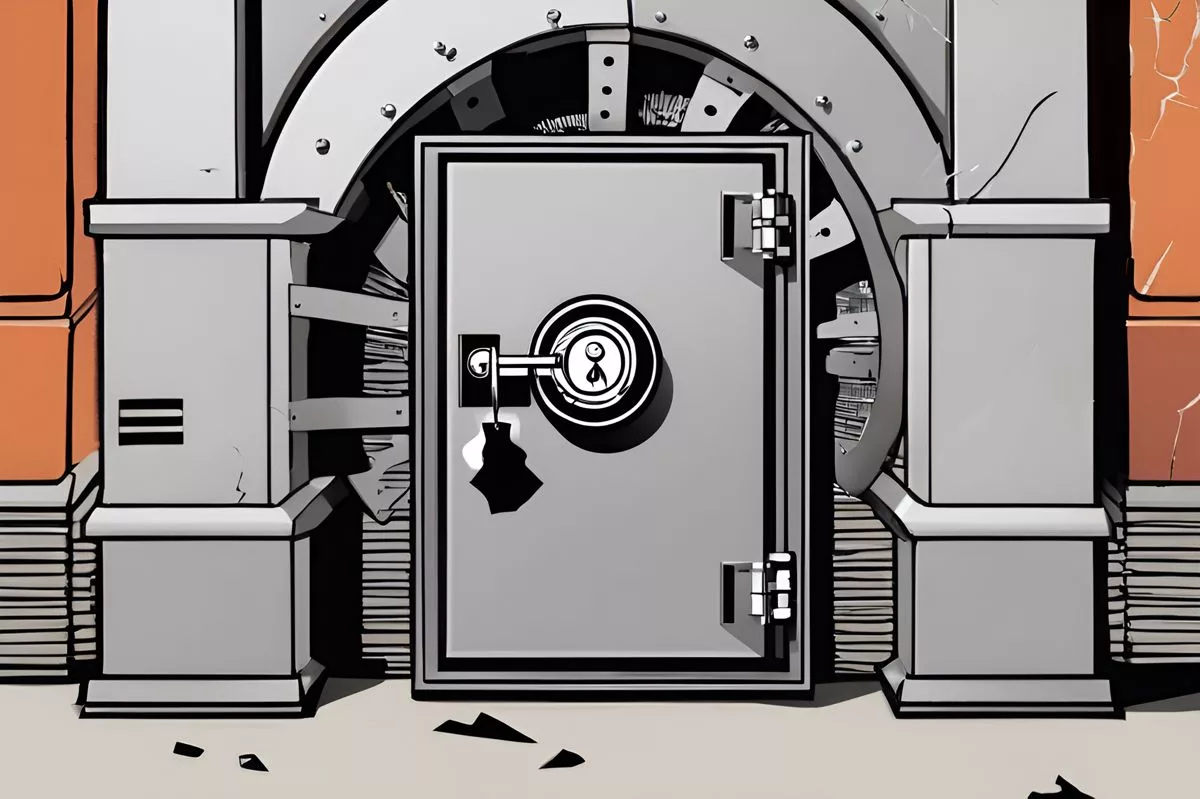The DPME plays a vital role in ensuring governance coherence in South Africa by institutionalizing planning, creating an integrated monitoring system, critiquing important government programs, and generating research outputs to guide decision-making.
What is the Essential Role of DPME?
The Department of Planning, Monitoring and Evaluation (DPME) plays a vital role in ensuring governance coherence in South Africa. The department institutionalizes planning, creates an integrated monitoring system, critiques important government programs, and generates research outputs to guide decision-making. Working collaboratively with the National Planning Commission (NPC), the DPME strives to achieve the objectives and goals outlined in the National Development Plan (NDP) Vision 2030, accepted by the parliament in 2012.
As Cape Town bid adieu to another bustling day, an electric atmosphere prevailed in the infamous parliament building. The historic hub of power and decision-making witnessed Ms. Maropene Ramokgopa, the Minister in the Presidency for Planning, Monitoring and Evaluation, presenting the first Budget Policy Statement for the Department of Planning, Monitoring and Evaluation (DPME). The announcement, a crucial element of the 2024/25 budget vote, was awaited with bated breath and curiosity.
Upon her arrival, Ms. Ramokgopa extended a warm greeting to the attendees, which included the session chairperson, the Deputy Minister, the DPME’s director-general, media representatives, and the South African public. Her voice echoed powerfully through the revered parliamentary corridors, reiterating her robust commitment to the success of the current administration. Her statement was deeply rooted in the principles adopted by the Government of National Unity and President Matamela Cyril Ramaphosa.
Echoing President Ramaphosa’s inaugural speech, Ms. Ramokgopa emphasised the urgency to build an inclusive, transformed economy that paves the way for job creation and entrepreneurship. She underscored that the primary concerns of the people are not the conflicts of political ideologies but the fundamental necessities required for a secure, content, and fulfilled existence.
The Essential Role of DPME
The DPME serves a pivotal role in ensuring governance coherence. The department shoulders the responsibility of institutionalising planning, creating an integrated monitoring system, critiquing crucial government programmes, and generating research outputs to guide decision-making. Working in collaboration with the National Planning Commission (NPC), the DPME reaffirms its allegiance to the objectives and goals outlined in the National Development Plan (NDP) Vision 2030, accepted by the parliament in 2012.
Ms. Ramokgopa emphasised that the onus of achieving the NDP goals doesn’t rest solely on the government. All societal sectors need to answer the NPC’s Call to Action to overcome identified impediments and steer the country towards a higher growth trajectory. With the year 2030 only six years away, the NPC’s foresight in commencing work on the next long-term plan was commended.
The DPME, guided by the electorate’s voices as captured in the NDP, is proactively spearheading the development of a cohesive planning framework. This initiative aims to encourage policy coordination, integrated planning, and harmony across governmental machinery. The DPME is also working on the Medium-Term Development Plan (MTDP) for 2024-2025 to ensure alignment with national directives and foster inclusiveness.
Advancements and Challenges in the DPME
In order to align planning priorities with the national budget process, the DPME plans to persistently develop the Budget Prioritisation Framework (BPF). Ms. Ramokgopa expressed her eagerness for the President’s upcoming address, which she believes will offer direction for the government’s key programmes.
The DPME is strengthening its monitoring systems to compile credible evidence and inform the President and Cabinet about the progress of medium- and long-term plans. Over time, the department’s Sector Monitoring Branch has produced detailed reports on the government’s performance and specific sectors.
In May, the President publicised the 30-year Review Report of South Africa’s democratic governance. This report provides a frank assessment of significant victories and areas requiring improvement. Since the dawn of democracy in 1994, the government has endeavored to promote transformation and facilitate an inclusive, prosperous nation. It has executed progressive legislation and policies, and established vital institutions to preserve and protect democratic gains and human rights.
Looking Ahead: DPME’s Future Plans and Budget
Ms. Ramokgopa reflected on the improved lives of previously marginalized citizens who were largely excluded from the socio-economic activities of the country. The 30-Year Review Report has been extensively shared with various societal sectors to shape future development agendas.
The DPME’s Evidence, Evaluation and Knowledge Systems branch conducts comprehensive research, data analysis, and evaluations on vital government programmes. Its goal is to influence better policy implementation and development impact. The focus for the 2024/25 period is to enhance support for the priorities of the 7th Administration.
Efforts are also underway to update the National Evaluation Policy Framework (NEPF). The revised NEPF will guide the development of the next National Evaluation Plan and the Research Agenda to cover the period of the MTDP. The department is also creating dashboards and data science tools to modernize reporting on the MTDP.
The DPME utilizes completed research and evaluations to guide policy decisions and improvement actions by departments. Several instances of this were highlighted, including the cost-benefit analysis on electricity pricing policy, research on gender-based violence, evaluation of the National Food and Nutrition Security Plan, analysis of the Land Restitution Programme, and review of youth employment creation programmes.
For the 2024/25 fiscal year, the DPME has been allocated a substantial budget of R450.189 million. These funds will be deployed to institutionalise planning, monitor, and evaluate the department’s key priorities and programmes, while simultaneously generating credible evidence to guide future decision-making.
As the session wrapped up, the impact of Ms. Ramokgopa’s words still resonated, emphasizing a commitment to transparency, accountability, and progress. The DPME’s crucial role in shaping South Africa’s future highlights the importance of its mission. This budget vote statement stands as a testament to the unwavering dedication to the success of the current administration and South Africa’s prosperity.
What is the role of DPME in South Africa?
The Department of Planning, Monitoring and Evaluation (DPME) plays a vital role in ensuring governance coherence in South Africa by institutionalizing planning, creating an integrated monitoring system, critiquing important government programs, and generating research outputs to guide decision-making.
What is the National Development Plan (NDP) Vision 2030?
The National Development Plan (NDP) Vision 2030 is a plan adopted by the parliament in 2012 that outlines the objectives and goals for South Africa’s development. The DPME works in collaboration with the National Planning Commission (NPC) to achieve these goals.
What are the DPME’s future plans and budget?
The DPME has been allocated a budget of R450.189 million for the 2024/25 fiscal year. These funds will be used to institutionalize planning, monitor and evaluate the department’s key priorities and programs, and generate credible evidence to guide future decision-making. The department is also updating the National Evaluation Policy Framework (NEPF) and creating dashboards and data science tools to modernize reporting on the Medium-Term Development Plan (MTDP).
What advancements and challenges is the DPME facing?
The DPME is strengthening its monitoring systems to compile credible evidence and inform the President and Cabinet about the progress of medium- and long-term plans. The department is also developing the Budget Prioritization Framework (BPF) to align planning priorities with the national budget process. Challenges include the need for policy coordination, integrated planning, and harmony across governmental machinery.
What is Ms. Ramokgopa’s commitment to the current administration?
Ms. Ramokgopa is committed to the success of the current administration and South Africa’s prosperity. She emphasizes the urgency to build an inclusive, transformed economy that paves the way for job creation and entrepreneurship, and the importance of achieving the NDP goals through collaboration with all societal sectors.
What has the DPME achieved through research and evaluations?
The DPME utilizes completed research and evaluations to guide policy decisions and improvement actions by departments. Examples of research and evaluations include the cost-benefit analysis on electricity pricing policy, research on gender-based violence, evaluation of the National Food and Nutrition Security Plan, analysis of the Land Restitution Program, and review of youth employment creation programs.












